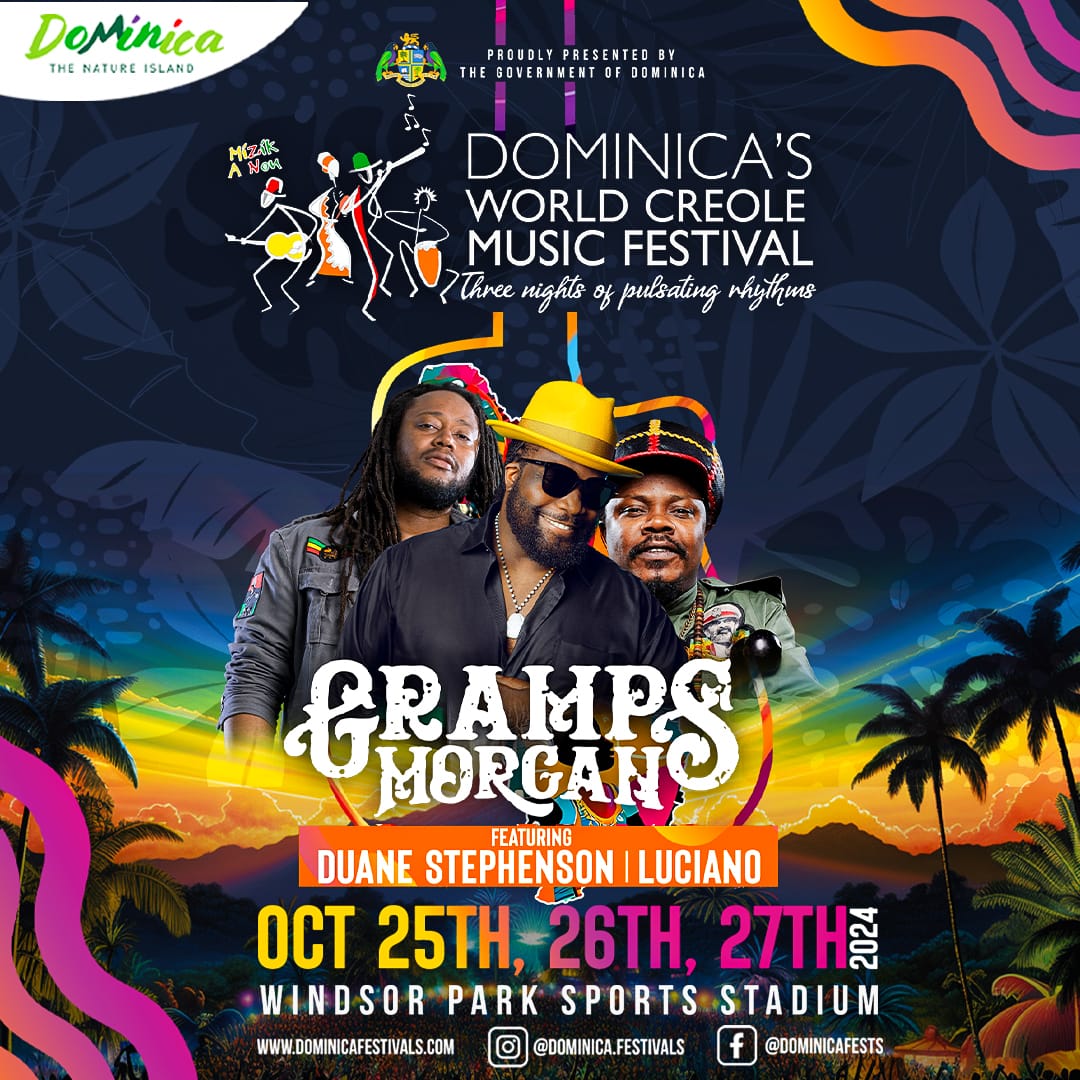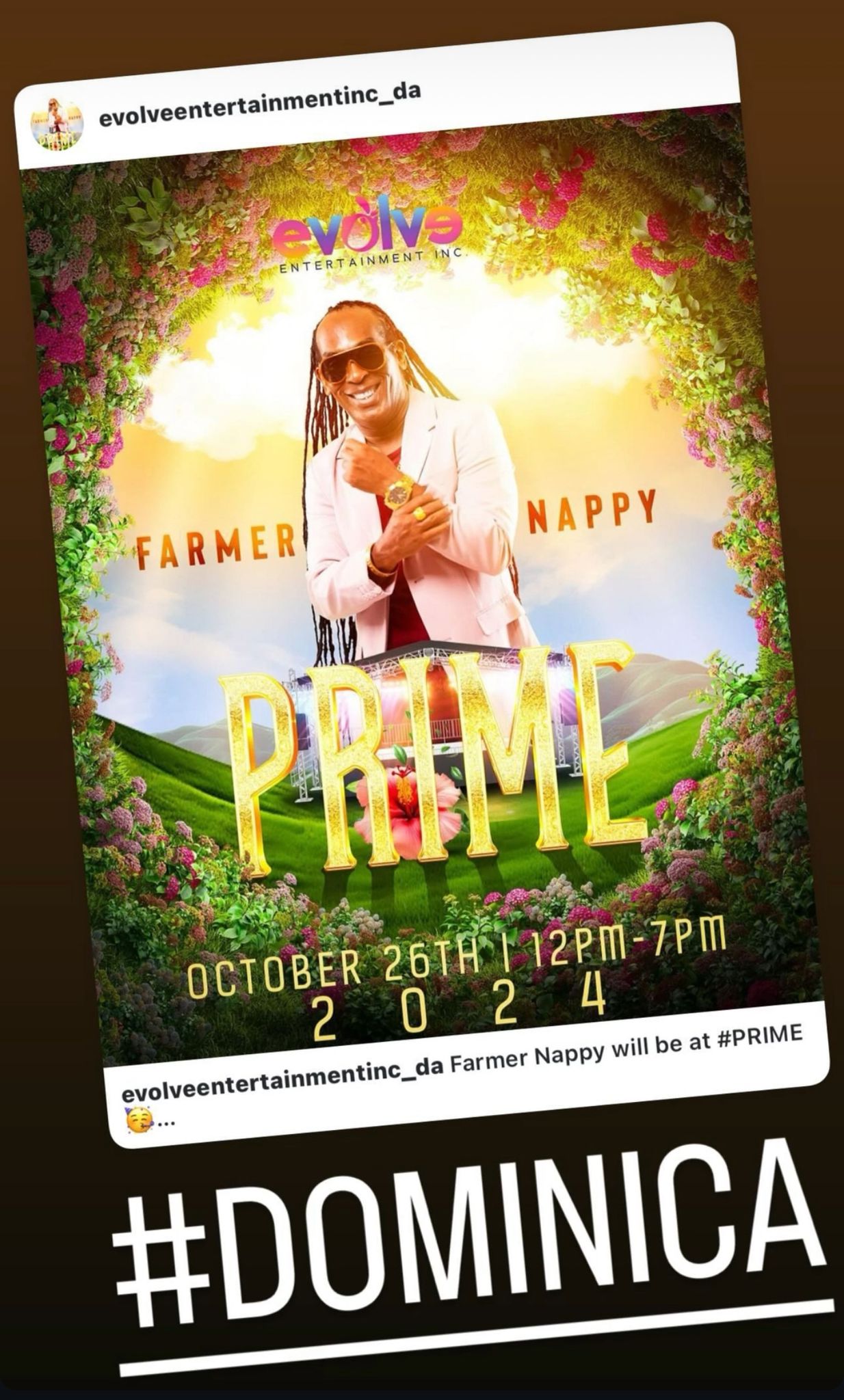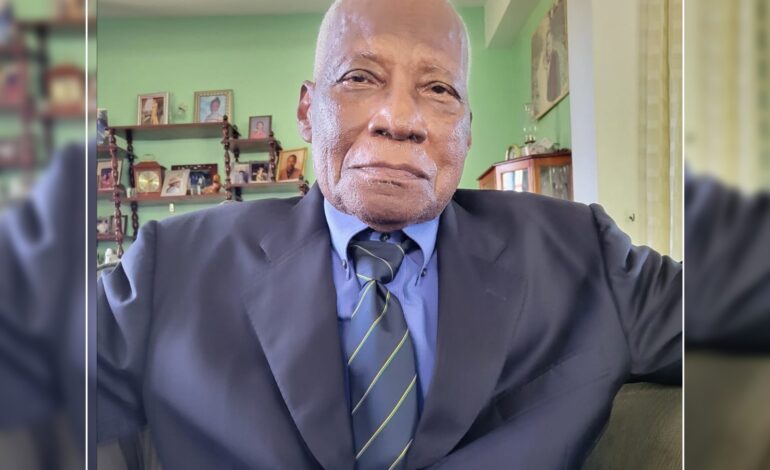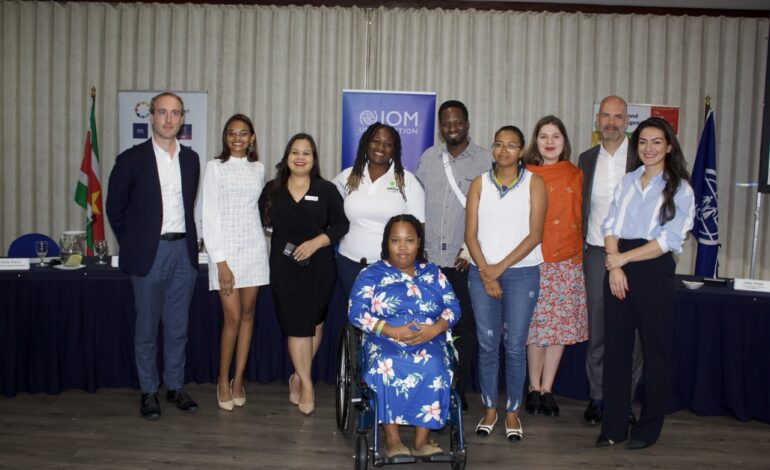
[Paramaribo, Suriname, 29 February 2024] – The International Organization for Migration (IOM) Caribbean Coordination Office held its fourth episode of “Conversations on Migration in the Caribbean” on 28 February 2024, at the Torarica Hotel in Paramaribo, Suriname. The panel discussion, with youth leaders from six diverse Caribbean civil society organizations (CSOs) engaged a live and online audience and explored the topic of empowering youth through more meaningful engagement in discussions on climate-induced migration.
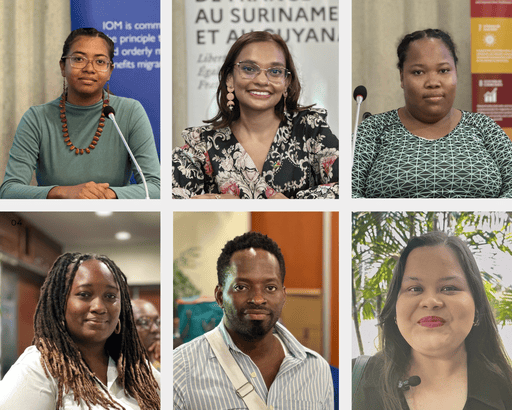
The young panelists represented the Aurae Opus Foundation and VIDS (Bureau Association of Indigenous Village Leaders) from Suriname; The Breadfruit Collective and SASOD from Guyana; the Dominica Association of Persons with Disabilities Inc., and the Jamaica Climate Change Youth Council. Iulia Duca, Programme Officer at the Climate Action Division, and Focal Point for CSOs and Youth at IOM Headquarters in Geneva, moderated the Conversation.
The event began with inspiring words from Chermain Pansa, SDG Youth Ambassador in the Ministry of Labour, Employment Opportunity and Youth Affairs of the Republic of Suriname, followed by Ivette Patterzon, Deputy Permanent Secretary of Climate Change in the Ministry of Spatial Planning and Environment. They prepared the ground for a lively discussion on the difficulties youth encounter in trying to impact climate actions related to climate-induced migration.
Indicating her government’s commitment to include the youth of Suriname in important discussions, Ms. Patterzon noted that “The Government of Suriname has set the goal to develop a national policy plan on international migration with strategic priorities and concrete advice. As we set in place a framework to provide for safe, regular and orderly migration, we must make use of our creativity to address its causes. We need our diverse voices representing different islands, countries, backgrounds, and experiences. Let’s amplify diverse youth voices in climate migration talks, fostering solution through shared power and intersectional perspective.”
The Conversation was led by three topic questions:
- How to promote youth engagement in climate-induced migration discussions, so youth can be part of the solution?
- What skills of youth in entrepreneurship, digitalization and innovation, can be harnessed for climate action?
- How to build strong leadership, for youth engagement to address climate-induced migration?
The panelists indicated that communication needs to be contextualized to the youth, who may not yet have understood how climate change connects to them. Entertainment events and appropriate language were suggested, where awareness is planted like a seed that will grow. Youth must first understand the impacts, and then be engaged in the decision-making processes, “shaping policies, strategies and innovative solutions”.
The young leaders urged decision makers to seek the traditional knowledge of indigenous communities, and the give consideration to the effects on their communities, livelihoods and rights. This reinforced the broader message that consultation must take place with the people who are affected, allowing them to propose their own solutions. These affected people include vulnerable youth, who because of their socioeconomic status are highly susceptible to human rights violations, and to being excluded from social services and protection. Youth and other interest groups must have a meaningful role in making legislation and be given sufficient time for review of proposed legislation, and providing feedback, recognizing that many CSO representatives are volunteers with responsibilities to full-time jobs or full-time studies.
The lively exchange of perspectives and experiences took place with an active audience including government representatives from Suriname, IOM and other UN agency representatives, Youth Parliamentarians, students, and other Caribbean CSO representatives, plus close to 100 online participants. It was also broadcasted locally on STVS television channel in Suriname.
Conversations on Migration in the Caribbean Episode 4 underscored the critical role of youth and other under-represented groups who are affected by climate-induced migration, in shaping effective responses and building a more inclusive and sustainable Caribbean region. The IOM Caribbean team and all CSOs involved hope that the outcome will be tangible actions to include Caribbean youth more meaningfully in decision-making that affects their present and future. The next opportunity could be as soon as in May this year, at the 4th Conference of small island developing states SIDS, taking place in Antigua, or through the on-going CARICOM-led process to develop a regional approach to migration policy.
The panel discussion was coordinated by the IOM Caribbean Coordination Office on the fringes of a “Regional Conference on Environmental Migration and Disaster Displacement for Caribbean CSOs” being held on 29 February and 1 March 2024, in Paramaribo. Both events are funded by the French government as part of the Caribbean component of the “Implementing Global Policies on Environmental Migration and Disaster Displacement at the Regional Level” project. IOM Suriname also provided support to this activity.
Here are key takeaways from each of the panelists:
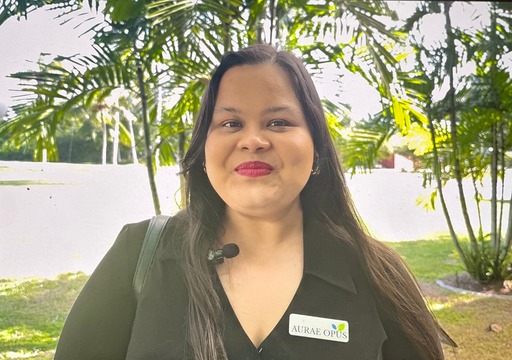
Nuravni Sallons, Managing Director of the Aurae Opus Foundation, an NGO focused on climate, environment, and sustainable development in Suriname, suggested speaking to youth in their own language: “What if we create awareness in the language that they understand? For example, you can have that same backyard party, but then you involve the youth by bringing your own bottle made of biodegradable material for the party […] which creates awareness on a small level but it works like a seed. If we want to involve youth a bit more into these global issues, we have to do that in a language that they understand.”
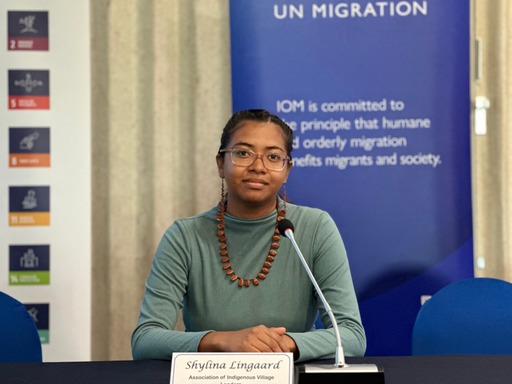
Shylina Lingaard, a young indigenous woman from the Lokono (Arowak) tribe, representing VIDS (Bureau Association of Indigenous Village Leaders in Suriname) emphasized that engagement of indigenous people including youth is crucial for effective governance. “For indigenous communities, and indigenous people are known to be guardians of nature. So, therefore, they also have their own traditional knowledge and mobility and way of living how to maintain and protect the forest. So for them, the issues of climate change will not be spared, for example, the indigenous people in the south region, they also experienced extreme drought and persisting floods causing the ground to saturate which causes the crops to eventually die, and this endanger their food security.”

Christine Samwaroo, Founder and Managing Director of The Breadfruit Collective, a Gender and Environmental Justice organization based in Guyana, reminded the audience that affected people are the ones who it is most important to consult. “As an intersectional feminist, we have this principle of thinking abundantly or thinking that there is enough for everyone; and when you’re thinking abundantly, thinking about everybody that’s where you get the diverse solutions, and people who are closest to the problem, they are the ones that actually have the solutions.”

Joel Simpson, Founder and Managing Director of SASOD Guyana, urged the audience in the room and online in the ZOOM conversation to make the effort to include youth on the fringes of society: “For me, it’s very important that vulnerable youth are included and are a part of the conversation, and what do I mean when I say ‘vulnerable youth’? I’m talking about young people whose socioeconomic circumstances, even without the climate crisis, make them more susceptible to human rights violations, they’re often not met with services and systems of protection which are supposed to exist, don’t benefit them in the same way, as they do for other young people who are not on the fringes of society.”
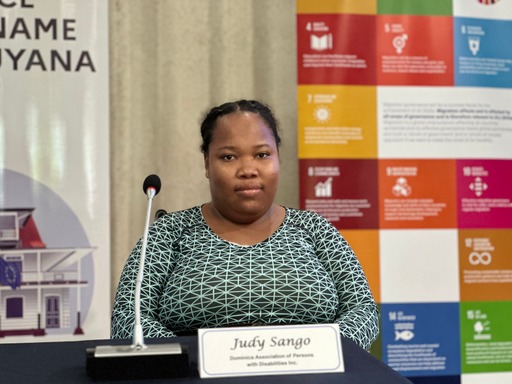
Judy Sango, the youngest ever President of the Dominica Association of Persons with Disabilities Inc, emphasized the importance of educating the youth, raising their awareness, and including them in shaping solutions: “Providing education and creating awareness about climate change and its impact on mobility among youth and vulnerable groups is crucial. This can be done through workshops, seminars, campaigns and educational programmes focused on climate change and sustainable transportation. Inclusion in decision making processes comes secondly; ensuring the active participation of youth and vulnerable groups in decision making processes related to climate mobility is important. Their voices and perspectives should be heard and considered in shaping policies, strategies and innovative solutions.”

Dahvia Hylton serves as the co-lead for the Research, Advocacy and Policy Development Committee within the Jamaica Climate Change Youth Council. She noted the importance of timely engagement, particularly since youth and other advocates are usually volunteers: “You also need legislative support as well, space in making legislation. Whenever that comes up, it’s usually just a couple of days before you hear that they are going to look at this legislation and you have to read through this thick document and you’re thinking of your own job, you’re thinking of school (if you’re still studying) and it becomes so difficult. So the processes have to change, they have to include a lot more time, and then include a lot more space for civil society to speak.”
